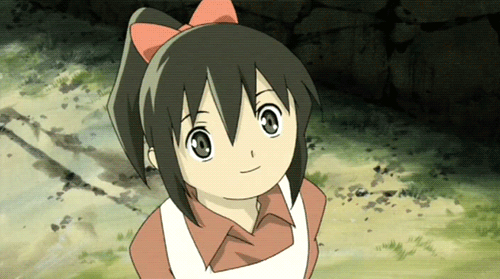Back with a new episode! Okay, USUALLY, this series will only update every Wedensday as I plan to start up Lessons from Anime again. However, this time, since I only gave you an intro on Wedensday, I'mma give you actual content. Away we go!
Okay so…agents get a lot of queries every day. A lot. And if
you consider the fact that reading queries is basically something they do in
their free time, they don’t have a lot of time to comb through the slush every
day. In the case of one of my internships, it was my job as the intern to comb
through the slush and look for queries that fit the agents taste.
When I came to the office there were about six hundred
queries in the inbox with more coming in every day. That's A LOT.
You just don’t have time to carefully read all of those queries so you have to find ways to get through them quickly.
You just don’t have time to carefully read all of those queries so you have to find ways to get through them quickly.
Its easy to throw away stuff that doesn’t follow the query
guidelines, but here are some other reasons that I tossed a query into the no
folder soon after I started reading.
1.
Lots of errors
Really, if you want your work to look good, edit it ten or
twenty times before pressing the send button. A lot of errors quickly tells an
agent that you have some basic developing to do and that you’re not great at
self-editing. Put your best foot forward.
2.
Cliché premise
Some stories, we’ve heard before, and there are plenty of
queries that sound as dull as they come. Nothing original sticks out about. It
sounds like a conglomeration of other plot lines that have been done before.
Now, of course there aren’t many original ideas out there, but most works do
have a stand out element. Find what stands out about your work and feature that
in your query
3.
Played out genre
The agent basically told me to put anything dystopian and
paranormal romance in the ‘no’ folder unless it was REALLY good. When you’re
writing in a genre that’s been played out, it has to be something truly
special, so sometimes you’re fighting an uphill battle. That’s not to say that
some agents won’t still be on the lookout for your genre, but if an agent says
that they’re tired of something…they probably aren’t the right one for you.
4.
Similar to something already on their list
A lot of times it’s good to submit to an agent who reps
titles comparable to your work. But if they’re too comparable, then the agent isn’t going to take it on. Simply
put, they’re already working on something similar so unless yours blows their
socks off, they’ll let it go
5.
Just not right
More than once, I forwarded a submission that I thought was
original and really knocked my socks off. But sometimes that would still get
rejected because it wasn’t right. A picture book that was a little too long for
instance, or just something that didn’t peak the agents interest. It happens,
to be sure. And you want someone who is fully passionate about your book, so its for the best.
6.
No Voice
Sometimes a book lacks a certain feel. A certain life. This
life is usually imbued by voice and there are plenty of submissions that don’t
have that. Often they come from more inexperienced writers who haven’t found
their voice yet. Its one of those things that come with practice.
7.
Just…average
I read plenty of submissions that were well written with
nothing technically wrong with them but none of them grabbed me. An agent wants
to be pulled off of their chair (figuratively. I don't recommend actually pulling an agent off their chair) and into the story. When
something is just ‘good’ then it goes in the no folder.
8.
I’ve seen something similar that day that was
better
Sometimes a submission raises my standards for the day. Then
I might stumble across a similar submission that isn’t as good. Because of the
first, brilliant submission, the other submission might pale in comparison.
As you can see, a lot of this stuff is situational. It
depends on the day and the other things the agent sees. Agents are biased
people. They have good and bad days. Their tastes and interests shift. That’s
what makes the trenches a difficult place to navigate.
The point is: sometimes rejection isn’t your fault. Don’t go
running off to change your query after a few rejections. But several rejections
may tell you that your query isn’t standing out.
No matter what, put your best foot forward and do whatever
you can to help your novel stand out. But always follow the query guidelines ;)














